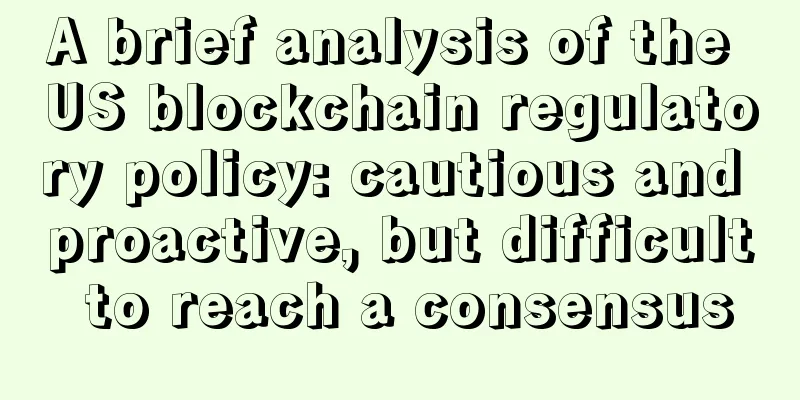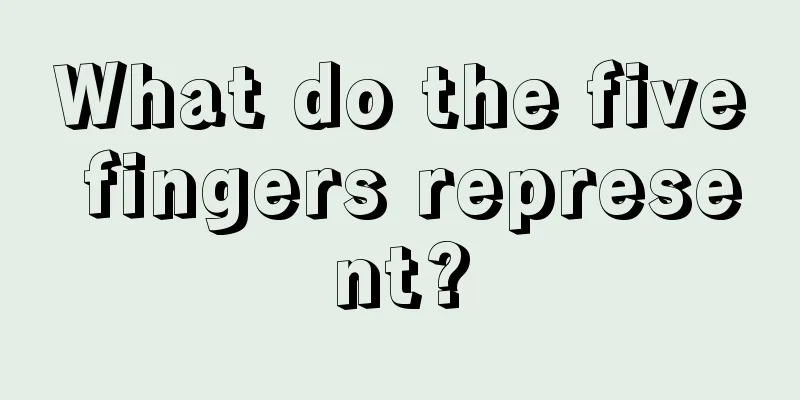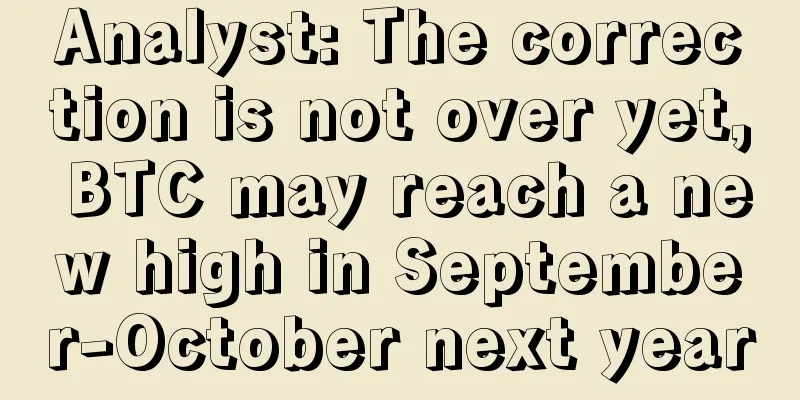A brief analysis of the US blockchain regulatory policy: cautious and proactive, but difficult to reach a consensus

|
Source: ChinaBlockchainNews (ID:ChinaBlockchainNews) Author: Tongduo Editor: Yin Yue In the cutting-edge innovation field of blockchain and digital currency, the real important players are from China and the United States. The United States excels in protocol layer innovation, while China is strong in application layer development. The two countries can be said to be on par in the field of blockchain. At present, since China's top leaders collectively studied blockchain in October 2019, top-level designs and supporting policies for the development of blockchain industries in various regions have been released. In April this year, blockchain was further included in the scope of "new infrastructure". In contrast, the United States currently does not have a systematic and comprehensive top-level design for blockchain regulatory policies. Instead, technical bureaucrats are mainly responsible for carrying out detailed transactional supervision within the existing legal and regulatory framework. The focus of the work is to eliminate illegal issuance of securities, protect the rights and interests of investors, combat money laundering, and prevent tax evasion. Prudent frameworkAs the current superpower and world hegemon, the United States is the biggest vested interest in the current international financial system. Blockchain and digital currencies, which are "disruptive innovations" in the current international financial system, are naturally prone to disgust and rejection by the American political and financial elites. For example, Buffett has publicly criticized Bitcoin more than once, calling it rat poison squared. Therefore, U.S. financial regulatory agencies that have law enforcement powers in the blockchain field, including the U.S. Securities and Exchange Commission (SEC), the U.S. Financial Crimes Enforcement Network (FinCEN), the U.S. Internal Revenue Service, the U.S. Department of Justice, state governments and prosecutors' offices, all hold a cautious attitude towards the development of blockchain. The only exception is the U.S. Commodity Futures Trading Commission (CFTC), whose former chairman J. Christopher Giancarlo is known for his friendliness towards blockchain and digital currency and is known as the "cryptocurrency dad" in the U.S. He innovatively set up a regulatory sandbox, which enabled the Chicago Mercantile Exchange (CME) to launch bitcoin futures and achieve great success. In May 2019, J. Christopher Giancarlo once again called on U.S. financial regulators to "have fewer regulations and more principles" in his farewell speech, giving blockchain and digital currency more tolerance and development space. However, other U.S. financial regulators did not buy it and continued to do their own thing. Throughout 2019, various departments issued blockchain regulatory guidelines one after another. Effective supervisionThe SEC's regulatory focus is on illegal initial coin offerings (ICOs). On April 3, 2019, the SEC officially released the "Blockchain Token Regulatory Guidelines", which clearly stated that all digital currencies that fail to pass the Howey test will be uniformly regarded as securities. Subsequently, the SEC began a new round of pursuit of blockchain projects that issue digital currencies, including well-known blockchains EOS and Gram. Among them, EOS settled with the SEC after paying a fine of US$24 million, while Gram was forced to stop. The U.S. Financial Crimes Enforcement Agency (FinCEN), whose responsibilities include preventing terrorist financing and anti-money laundering, prefers to view digital currencies as currencies rather than securities. In 2019, the U.S. Financial Crimes Enforcement Agency also issued a regulatory interpretation guide on blockchain and digital currencies, clarifying which blockchain businesses need to go through the registration process with the department. Previously, OKEx and Huobi have successively stated that they have completed FinCEN's MSB registration (short for Money Services Business, which is a registration license system). Huobi founder Li Lin once said that after holding MSB, it means that the currency-to-currency trading business can be carried out in compliance with regulations in the United States. In fact, USDT, the largest stablecoin in the digital currency market, has also been under the supervision of the US Financial Crimes Enforcement Agency. Americans have a famous saying that no one can escape death and taxes in this world. The IRS has long been in the blockchain and digital currency world. The IRS has explicitly asked Coinbase, one of the world's largest digital currency exchanges, to share its user data to determine the taxes that profitable users of the exchange should pay. On October 26, 2020, the IRS followed the latest developments in the blockchain field and required investors to pay taxes on income from airdrops and hard forks. In summary, the regulatory framework of the U.S. financial regulatory agencies on blockchain and digital currency is relatively rich and highly enforceable. The technical bureaucrats have performed their duties conscientiously and have effectively supervised blockchain and digital currency, effectively curbing the chaos that has occurred in the blockchain and digital currency fields in recent years. Next stop: Blockchain-specific billIn 2020, as the concept verification and small-scale pilot of China's central bank digital currency DC/EP continue to advance, U.S. financial regulatory authorities can no longer bury their heads in the sand and ignore the innovative significance of blockchain and digital currency. Under such circumstances, U.S. lawmakers have begun to take action. According to the China Times, the U.S. House of Representatives Energy and Commerce Committee recently held a marathon legislative hearing, which recorded 38 bills, including the Blockchain Innovation Act and the Digital Taxonomy Act, which were reported to the House by members of Congress. This is the most complete bill proposed in the U.S. Congress to date to address the transparency of blockchain token regulation. But in many hearings on blockchain and digital currency, different voices of congressmen were equally loud. As an opponent of cryptocurrency, California Congressman Brad Sherman called for a bill to ban all cryptocurrencies and prohibit Americans from buying or mining cryptocurrencies; he said that in addition to being used as currency in the future, cryptocurrencies could also be used by tax evaders who circumvent U.S. sanctions. In the United States, where all issues have become ideological and politicized and the country is facing a presidential election, there is a big question mark as to how far the Blockchain Innovation Act and the Digital Taxonomy Act can go in Congress. It now appears that for quite some time, technocrats at U.S. financial regulators will continue to patch up existing regulations to adapt to the rapidly evolving blockchain sector. |
<<: [Update] Grayscale once again increased its holdings by 4,751 Bitcoin and 10,479 Ethereum
>>: Are crypto assets being included in asset allocation by more and more institutions?
Recommend
What does a mole on the back mean? What does a mole on a man’s back mean?
Moles are very familiar to everyone, and moles in...
2017 ZEC virtual currency graphics card computing power test ranking
As we all know, Bitcoin and Litecoin cannot be mi...
How to read the health of the face
In addition to revealing a person's fortune, ...
Forehead scar facial analysis
The forehead represents a person's career and...
Is it okay to have a mole on the back of your hand?
Is it good to have a mole on the back of your han...
The battle between the mining machine godfathers: the preacher, the dictator and the prophet
Original title: "Evangelist, dictator and pr...
The European anti-terrorist crisis broke out, and the EU's new anti-money laundering regulations hurt Bitcoin companies, but the development of blockchain was not affected
In the context of recent terrorist attacks across...
Opinion | Should Ethereum’s roadmap change?
Since the publication of "A rollup-centric e...
Analysis of the facial features of men with sausage mouth
In physiognomy, men with sausage lips are very pr...
What is the "Chuan" palm? What does the "Chuan" palm represent?
In our real life, each of us has different palm l...
What is the fate of a woman with a crooked mouth?
What is the fate of a woman with a crooked mouth?...
Why are foreigners not optimistic about Filecoin?
Author: Nico Deva Compiled by: Savage Produced by...
Characteristics of career lines that often lead to noble people in the workplace
Characteristics of career lines that often lead t...
South Korea announces it will not recognize Bitcoin as a legal currency
According to the Korea Herald, South Korea's ...
Exclusive: Huobi's acquisition of the largest exchange in Japan and South Korea may be delayed due to investigation
Wu said blockchain exclusively learned that Huobi...









